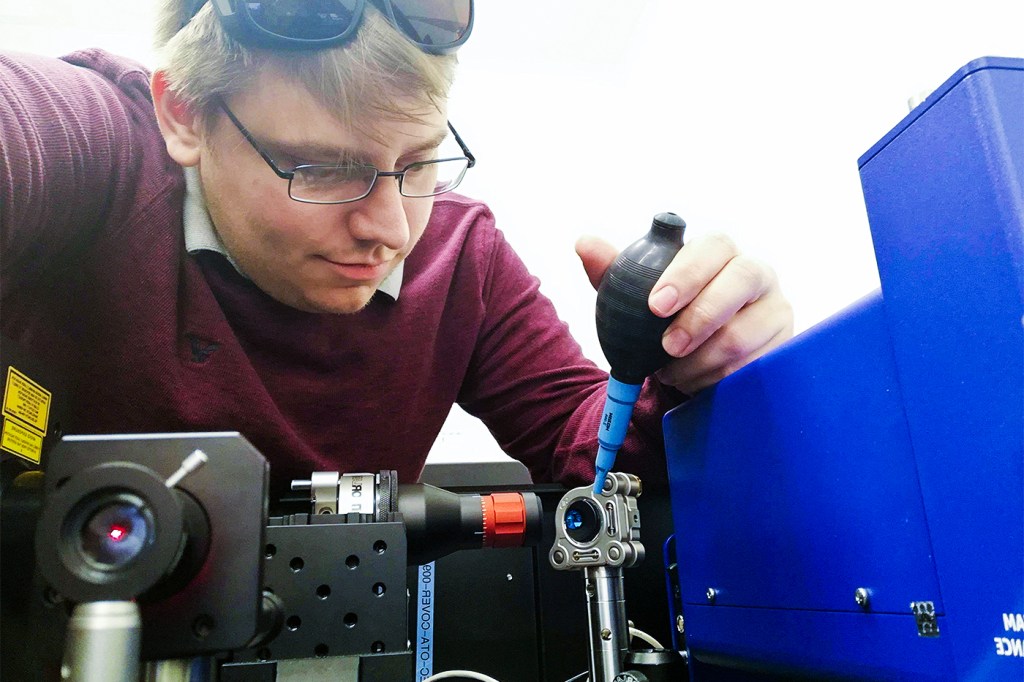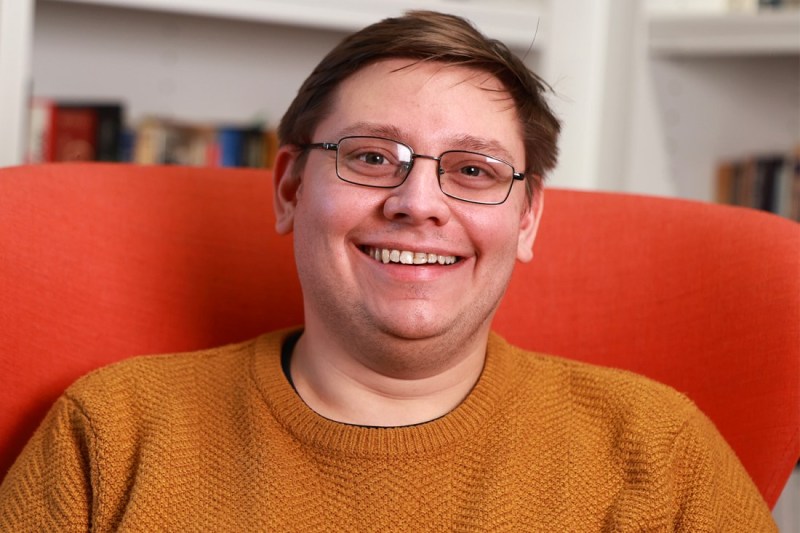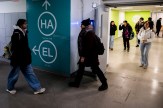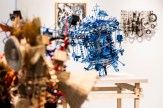Northeastern professor honored by UK’s Institute of Physics for community outreach and building global partnerships
James Kneller, an assistant professor of physics and applied mathematics, is the recipient of the Phillips Award. He wants children and teenagers to see that physics can be for everyone.

LONDON — Since he was young, James Kneller has been consumed by the question of why things happen the way they do.
For the Northeastern University academic, it was physics that held many of the answers. His love for the subject encouraged him to go on and teach it to thousands of students in a classroom setting.
But it is not only higher education students whom the assistant professor of physics and applied mathematics wants to inspire. Kneller is on a mission to bring through the next generation of physics fanatics.
You can find him at community events showing off the marvels of gravity, force and resistance through tricks and stunts. He has arranged for companies such as Rolls Royce to head into girls’ high schools in deprived areas to show how physics is applied in everyday work environments and attempt to address the subject’s gender imbalance.
And not content with helping arrange a university-level annual international physics tournament, he took on the task of setting up a U.K. version of the competition to which he takes a Northeastern team each year.
It is for these reasons that the Institute of Physics, the subject’s accrediting body for the United Kingdom and Ireland, has bestowed him with the Phillips Award.
The annual award — named after Major Charles Phillips, a pioneering 20th-century British medical physicist — recognizes those who have played a significant role in the institute and is designed to reward innovative ideas and activities.

Kneller, who has worked at Northeastern since 2018, says through his outreach programs he wants children and teenagers to see that physics can be for everyone.
“People are influenced from an early age and physics has a hard time getting that kind of enthusiasm early on,” Kneller says when asked about what inspires him to work with young people.
“People get scared off. They think, ‘Oh, it is too much math, it’s too difficult.’ I don’t agree with that. I think it is for anyone and can be very approachable.
“And if I can make that come across — that it is exciting and that there are a lot of opportunities — then that’s going to build up the next generation better and better. And the best way to do that is to hit them young, before they have made any decisions, before they’ve chosen any courses, because that is the most influential part of their life.”
Featured Posts
For Kneller, physics provided answers to the many questions that confronted him about the world. “Physics is a subject of always explaining how things work and that really appealed to me,” he says.
“It is basically asking ‘Why?’ constantly, like a 5-year-old — and that’s what I’m still doing. Physics helps to explain things, whether it is about how the universe works to something [more tangible] like, how you can pick up a jar of rice using just a pencil.”
During the COVID-19 pandemic, Kneller, when he was chairman of the Institute of Physics’ London and South-East England Branch, became concerned about the “digital exclusion” of children learning remotely, particularly among lower-income families who did not have easy access to laptops or tablets.
His branch, working with local food banks and community groups, sent packages to families with a do-at-home science experiment where they were tasked with putting a kebab skewer through a blown-up balloon.
Kneller explains that the idea is to have fun while also depicting how there is science involved in how the skewering works.
“You tie a knot in the balloon and then stick the skewer through it and it doesn’t pop,” he explains. “So the science there is that there is surface tension — it balloons under a lot of stress when it is inflated. But there’s two parts of the balloon which are not as stressed, which is where the knot is and then the little nub at the top where you can put the stick through and it doesn’t burst.
“I’ve also gone to music festivals and done that with kids. It brings in the whole family and what you find is that kids learn mostly from their parents. So if we can engage the parents in the activity, then it brings them in more.”
A major part of Kneller being nominated for the Phillips prize is for the amount of time he spends volunteering on making PLANCKS (Physics League Across Numerous Countries for Kick-Ass Students), an international competition for students, a success.
The academic has been involved in organizing recent finals held in Britain and Ireland, including this year’s event in Dublin, during which teams of three to four students took an exam during a three-day conference. The annual competition offers students the chance to challenge themselves and to meet other physicists, hear engaging science talks and explore different cultures.
In 2017, Kneller decided to create a U.K. and Irish preliminary competition that now serves as the qualifying stage for teams in those countries. Each year, as well as helping to arrange it, he coaches a Northeastern team to contest the domestic heat.
He sees the award from the Institute of Physics as a chance to engage in even more community outreach, with help from Northeastern’s global network of campuses.
“Something I do want to focus on is bringing Northeastern more into this kind of outreach activity,” he adds.
“I’m part of Northeastern and this global network with lots of opportunities — can we use this as a springboard, to bring the university and other faculty along and give them the same kind of opportunities to engage and do outreach? That’s what I’m hoping.”











